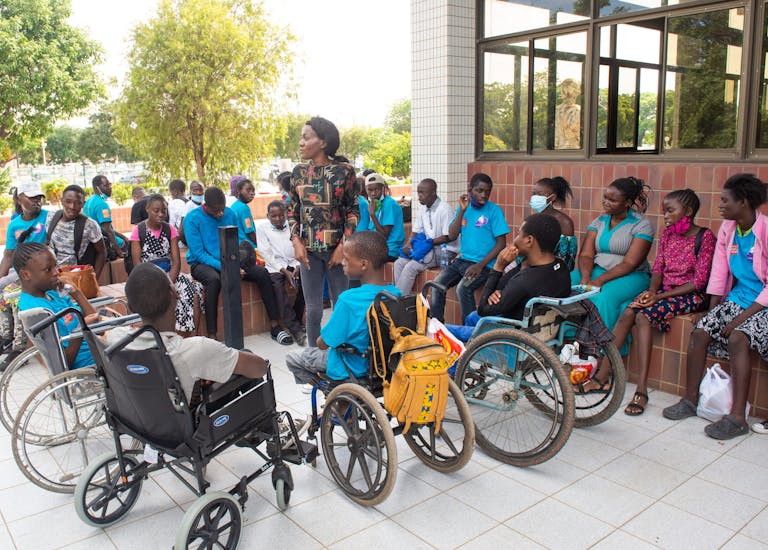For children with disabilities in Zambia, the storm hasn’t hit its peak yet

For children with disabilities in Zambia, the full impact of the cholera epidemic, which has been ravaging the country for four months now, will not become truly apparent until this crisis is over. This is what our strategic partner organization, Cheshire Homes Society of Zambia (CHSZ) foresees. Because care for these children is now virtually at a standstill because of the epidemic.
A particularly deadly cholera outbreak has been raging for some time in several countries in the southern part of Africa. In Zambia, where the outbreak began in October 2023, more than 700 people have since died and the entire country has now been affected. It makes this the deadliest cholera outbreak the country has experienced and Zambia the country hardest hit.
Causes why this epidemic has raged on for so long are inadequate drinking water and sanitation facilities combined with a water shortage, followed by floods. The cholera bacteria can spread unhindered and many people are forced to use the same, scarce – and often contaminated – water from the same source. The social impact of the epidemic is great, including for children, with and without disabilities. Schools were forced to stay closed longer after the Christmas vacations.
Housebound
Despite the unprecedented ferocity of the epidemic, CHSZ sees that children with disabilities are less likely to be infected than children without disabilities. The main reason for this is that children with disabilities tend to be more housebound, and therefore now have less contact with sources of infection.
For the same reason, these children are also relatively easily reached by the government’s vaccination program, where people are visited in their homes by vaccination teams. It explains why infection and death rates among children with disabilities are lower than among other children, according to Kamima Ng’uni, director of CHSZ.
Deferred harm
The biggest risk for children with disabilities, however, according to CHSZ, is the indirect, delayed damage the epidemic causes for them. Because their rehabilitation, therapy and care programs are now halted, by order of the government. Except in emergency situations, no care and support can now be provided and no monitoring takes place.
For example, the Zambia Enhanced Community Based Rehabilitation Program (ZECREP) is forced to shut down. Through this program, our Zambian partner organizations work to structurally improve the living conditions of children with disabilities. Part of this program are home visits to children with disabilities by welfare workers. These home visits cannot go on now either.
Support and attention
The extent of the damage caused by the cessation of these and other programs will, in many cases, only become clear much later. CHSZ and the network of partner organizations are working together to support each other as much as possible in managing this unprecedented crisis. It is certain that children with disabilities in Zambia will continue to need our full attention and support.
Read more about ZECREP: ZECREP | Liliane Fonds


